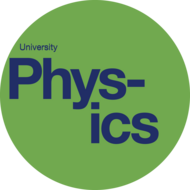
(View Complete Item Description)
This resource contains 95 multiple choice quiz questions inspired by Examples in the 12 chapters of University Physics Volume 2 Unit 2: Electricity and Magnetism. The quizzes have randomized numerical values, and can be printed out in two versions for students sitting side-by-side in a classroom. The current configuration creates 3-question quizzes. A study guide leads students to a practice quiz for each chapter. The number of questions in the study guide ranges from 4 to 11. The small number of questions in certain chapters does not imply that these chapters are less important -- not all examples make for good multiple choice test questions that involve numerical calculations. After this system has been field tested, more questions can be added where needed. Conceptual questions can also be added.
The selection of 3 questions from a given chapter was achieved by a random number generator. For this reason, the question selections might be less than ideal. These quizzes are not intended to have a large impact on the students' grade, but instead to encourage students to *read the textbook*. Also, since instructors know the contents of the quizzes in advance, they can compensate for idiosyncratic question selection as they prep students for the quiz.
The advantage of this system is that it is extremely convenient for instructors to use the browser's "print" option to print and distribute a quiz to the students. The disadvantage is that students and instructor have equal access to everything. Fortunately we can "hide the quizzes in plain sight". The current configuration provides 20 "renditions" of each quiz, and only the instructor knows which is selected.
The transparent nature of this unorthodox system has some advantages: Traditional methods of hiding the content of upcoming classroom exams are plagued by the fact that it is difficult to keep information secret. Instructors who use the same or similar exams for consecutive years will discover that students begin to exchange information with each other between semesters. An even more intractable problem is that testbank questions can be purchased on the internet. In this regard, the OER efforts might gain advantage over commercial ventures that sell text questions to instructors or students. The legitimate vendors (who sell to instructors) attempt to solve the "secrecy" problem by continuously modifying the textbooks, exams, and other ancillary materials. While all this ensures future revenues for the vendors, it also perpetuates costs for students.
In contrast, there is no need to modify an OER textbook by artificially creating a "new" edition. In fact, it is my experience that OER are created at a painfully slow pace, so it is unlikely that OER materials could evolve even if we wanted them to. This relatively "static" nature of OER textbooks suggests that the exams and homework problems be also "static". Instead of asking students to solve a homework problem at home, they should be quizzed on their ability to solve a problem whose solution is readily available online. Unfortunately all this tends to reduce the quality of lessons to that of rote memorization. So instead of finding interesting homework problems for which there is not solution available on the internet, we should task students with creating new homework problems and test questions. Those with less ability can be tasked with improving the posted solutions to problems that have already been solved.
Material Type:
Assessment
Author:
Guy Vandegrift










